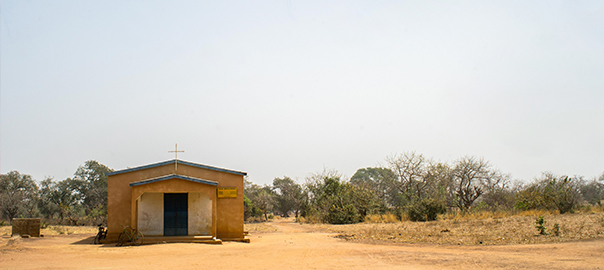This blog was originally posted in September 2015
Partnership is one of those tricky words that gets thrown around a lot. And it can mean different things to different people and organizations. Since one of Reconciled World’s Core Principles is “Partnering with Churches,” we want to take a few hundred words to unpack what we mean by partnership.
Just to be clear, Reconciled World is a community of programs that apply biblical truth to brokenness in a wide range of circumstances. We have all committed to the principle of partnering with churches, but that doesn’t mean we all do it perfectly or identically. We are all at different places on the journey. But we are all striving for the same goal–that the church would take its rightful place at the center of God’s transformational plan.
Ultimately, for us, true partnership with a local church means:
- The local church makes decisions about their own work in the community. If we want the church to take ownership of the work, and to continue it long after we leave, then the plans and goals also have to be theirs.
TCT provides one example of this. We only provide wholistic discipleship to help the church understand God’s calling to love their neighbors and His concern about every area of life. How they apply those ideas is for them to decide. In phase 3 of TCT training, we ask churches to create a map of their community, the way they dream it could be. They draw in schools, water systems, roads…those maps help to guide their future Acts of Love in service to their communities. Here is what happened in one area, reported by one of our leaders:
“Recently we followed up with these churches about their maps. Our question to them just concerned whether they ever looked back at this map and prayed about what they hoped to see happen. Their responses were astounding. Many didn’t just occasionally look back at it; some churches had it posted on the wall in the church and prayed regularly over it. Our trainers shared about what changes they had already seen and we realized that a majority of them (5 out of 8) had been able to get new schools from the government in just the 9 months since they had drawn their maps last June. Some communities had old primary school buildings desperately in need of repair, and the government had surprisingly agreed to replace the building. In one case a bad storm over the summer completely destroyed the old building so the government had to build a new one. Another community had never had a primary school at all, but after drawing the map the community worked together to build and start their own. And lastly, one community had hoped to be able to have their own high school so their children didn’t have to go to the next town. Since drawing the map, the government had agreed to start a high school in the community. We were amazed to realize how much God had done in such a short period of time.”
- The church moves the program forward. They take the lead role in implementation, while we bring training and support to help them. Change takes time. It happens inch-by-inch. It can be tempting to lay-out project goals and then rely on our own hustle to achieve those goals, hoping the church will catch on when they see our great success. Often the stakes are high, as we see things like child malnutrition or sex-selective abortion claiming lives every day. Yet we believe that to move ahead without the church is to get “out of step” with the Holy Spirit, who is at work in the church. We choose a supporting role because, ultimately, God will receive the glory when His body moves in response to His prompting. And that’s worth the wait.
A great example of this is our Ending Gendercide work in India. For several years, we reached out to pastors and church leaders, with seemingly little result. Many churches just didn’t want to talk about gender justice. They didn’t see it as their issue. Despite times of discouragement, our team in India pressed in, teaching biblical truth and seeking God in prayer. Now, in the past year, twelve churches partnered with us to receive training and have begun to see gender justice as a central ministry of their church. They are planning and implementing marriage seminars, abuse intervention, and outreach programs!
- The church uses its own resources to reach its ministry goals.We don’t pour in outside funding to “help” the church achieve more. Time and again we have seen that as the church gives sacrificially and depends on God, He is faithful to His promises to provide. The experience deepens the faith of the local church and brings glory to God.
One of our favorite stories about God providing comes from a remote village in Southeast Asia. The church had been studying TCT and had decided to build stable homes in their community. Halfway through the project, they completely exhausted their own resources. The church prayed and fasted all night, asking God to provide the resources to finish building the needed houses. In the morning as they left the church, a truck pulled up and dumped out all the building materials they needed! You can read the whole story here.
When Reconciled World says “partnering with churches,” we truly mean that we are seeking to stay relatively unnoticed in the background so that the church can fully experience all God has for them and so the community can see the church as the agent of Christ’s Kingdom on earth.



Leave A Comment